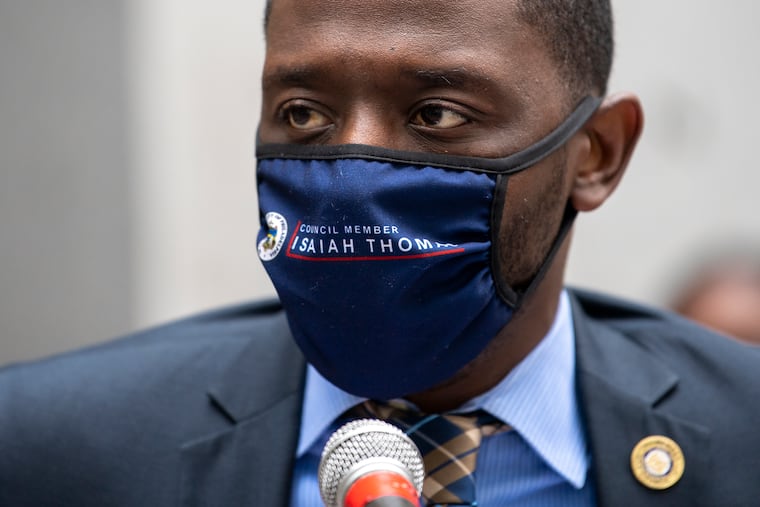Curtailing improper traffic stops is a path to more effective and equitable policing | Editorial
City Council appears poised to address another disturbing aspect of Philadelphia’s fraught history of racial bias in law enforcement — pretextual traffic stops.

Less than a year after voters approved a ballot measure to end illegal “stop-and-frisk” policing tactics, City Council appears poised to address another disturbing aspect of Philadelphia’s fraught history of racial bias in law enforcement — pretextual traffic stops, when the police pull over motorists for such minor offenses as broken tail lights.
Pretextual stops disproportionately target Black drivers: Councilmember Isaiah Thomas — the sponsor of what he calls a Driving Equality Bill which would eliminate the practice — says that while 43% of Philadelphians are Black, Black motorists make up 72% of those who are stopped. When officers conduct pretextual searches, according to Thomas, they hardly ever succeed in finding contraband: Less than 1% of all stops result in the discovery of drugs or illegal guns.
» READ MORE: Over-policing of minor infractions contributes to police brutality | Opinion
Thomas’ bill, expected to be taken up by councilmembers when they return from a recess later this month, comes after the disclosure last winter that some officers have been encouraged by their superiors to use pretextual stops to get around “stop-and-frisk” restrictions.
Despite the claims of critics, including State Rep. Kevin Boyle, the purpose of this bill isn’t to “restrict” law enforcement. It is designed to direct officers in the city to spend their time doing a more productive — and a more equitable — kind of police work. Thomas, like most members of City Council, wants to reform policing, not abolish it. In that spirit, Thomas’ bill isn’t asking the police to let dangerous criminals run free; the bill instructs officers to stop using a strategy that is clearly ineffective and which undermines the public’s trust in the department.
Thomas’ bill does not prevent officers from stopping motorists if they have a legitimate reason to believe that they have been involved in criminal activity — but that has to be more than a hunch. Likewise, the bill does not prevent the police from pulling over motorists who are driving recklessly, speeding, or otherwise endangering public safety. With over 119 deaths from vehicle collisions in 2020 alone, it’s clear that our city needs traffic enforcement. But instead of focusing on dangerous driving, data compiled by Thomas’ office show that most motor vehicle stops are for such minor issues as missing lights or tinted windows.
» READ MORE: Philadelphia police using vehicle stops to get around stop and frisk restrictions
As our city endures a crisis of murder and gun violence, finding fair and effective ways to ensure public safety is essential. And, in the view of this board, Council is placing a higher priority on finding those solutions than the mayor or the district attorney, who have of late seemed more preoccupied with their own squabbles.
This isn’t the only area where Council has taken the lead on public safety. In 2019, voters passed a still-to-be-implemented Council-sponsored change to the City Charter allowing for unarmed traffic enforcement to begin on some Philadelphia streets. That plan would free up officers to spend more time on strategies that have a bigger impact on public safety. Now is the time to get that program up and running.
From unarmed traffic officers to speed enforcement cameras on Roosevelt Boulevard, we have the tools necessary to provide safer streets for Philadelphians, and we know those tools don’t include pretextual stops.